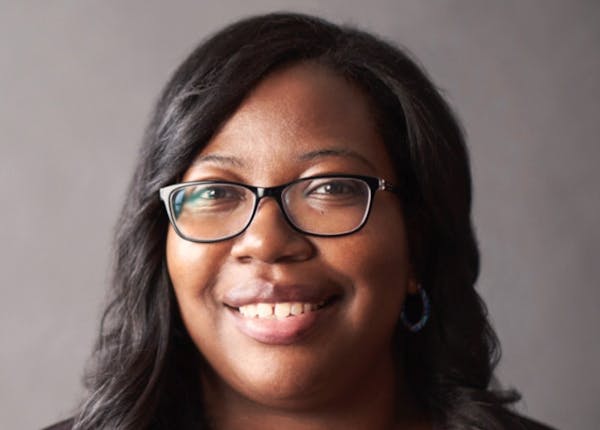State Rep. Ruth Richardson, the newly named CEO of Planned Parenthood North Central States, said she'll run the clinic side, won't lobby and will recuse herself at the Capitol from any votes that directly benefit the nonprofit's finances.
Richardson spoke to reporters briefly on Thursday, the day after she was named to the top job and the state Republican Party's spokesman Nick Majerus declared her new role a "clear conflict of interest."
"Just to be really clear, I'm assuming the role of the CEO of the nonprofit health center," not the public policy arm, Richardson said Thursday. The St. Paul-based health center is Minnesota's largest abortion provider.
Sarah Stoesz, who stepped down as CEO, was a registered lobbyist. Richardson said Stoesz will continue to oversee Planned Parenthood's political work.
"There's been a firewall between the (two) from inception and that will continue," Richardson said.
The DFL legislator has been in office for almost four years, representing Inver Grove Heights, Sunfish Lake and portions of Eagan and Mendota Heights. For the past three years, she's been the chief executive at Wayside Recovery Center, a St. Louis Park-based nonprofit that provides mental health and substance abuse support.
During her legislative tenure, Richardson said she recused herself once, on the record in the House, when there was a vote to extend funding for the Wayside Recovery Center.
Similarly, in her new role, Richardson said she'd differentiate between "broad policy issues that sort of effect everyone versus a specific issue." She said she'd recuse herself from voting on any direct funding to Planned Parenthood.
She also pointed out the structure of Minnesota's Legislature.
"Just to reiterate, we have a citizens' Legislature, and it is a citizens' Legislature by design, not by accident, and we have a variety of professions that are represented within the Legislature," she said.
David Schultz, a Hamline University professor of political science who specializes in ethics, agreed. He said the Legislature is full of people with other jobs and few guidelines about what constitutes a conflict when voting on bills.
"The strict rules of conflict of interest that we might apply if we had a full-time Legislature don't apply," he said.
Schultz said he thinks the Republicans are "whining" and singling out Richardson because she's a Black woman going to work at Planned Parenthood.
"I'm not seeing situations here where you have other (legislators) that have private employment that they're raising a big stink about," he said.
Richardson isn't doing anything illegal, Schultz said, adding that neither the DFL nor the GOP seems interested in stiffening conflict of interest laws or enforcement.
A House GOP spokesman declined to comment, and Majerus said the state GOP statement still stands.
Minnesota's Legislature is part time, so many lawmakers have second jobs. The concept is as old as the state, with the idea being that legislators would bring real-world experience to the Capitol.
The line for a conflict of interest is not bright. For example, teachers vote on education bills. Farmers vote on agricultural bills, and lawyers vote on all kinds of laws.
Under state law, a conflict of interest arises when a "public official's votes, actions, or decisions would affect the financial interests of the official, or those of an associated business, in a manner that is greater than the effect on other members of the same occupation or profession."
As to the demands of her new job, Richardson said she's up to balancing the work.
"I truly believe my records speaks for itself," she said, adding that she oversaw an expansion at her current clinic while authoring 30 bills that were passed into law. "It's hard work; it's not foreign to me," she said. "I put myself through law school while I was raising two kids and working three jobs."
Staff writer Briana Bierschbach contributed to this report.
